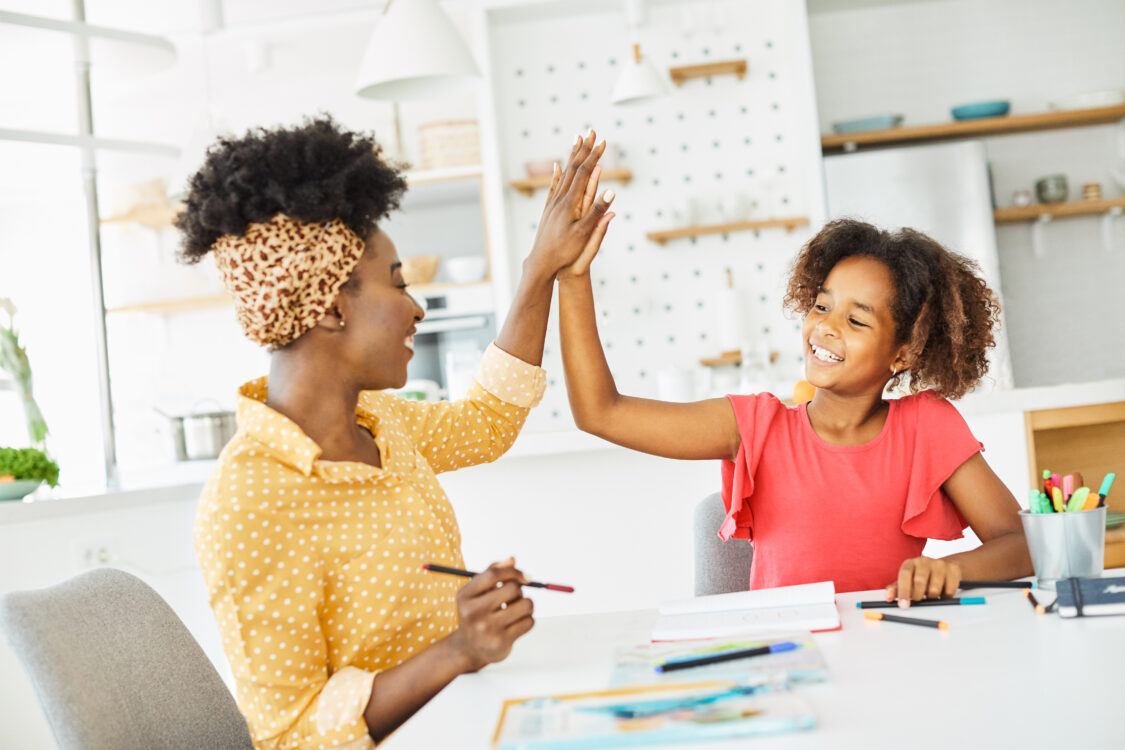“The great victory, which appears so simple today, was the result of a series of small victories that went unnoticed.”
– Paulo Coelho
When children are learning how to roll over, crawl, or speak adults often encourage their efforts with kind words, applause, and smiles. Just recently I was in a bookstore that has, within it, two small steps. A toddler was attempting to climb the first step. Once she navigated it, she turned around, made eye contact with her grandparents, smiled broadly, and started clapping. Her grandparents both celebrated her accomplishment with kind words of: “Look at you making it up that step all by yourself.”
In From Small Steps to Big Wins: The Importance of Celebrating, Melanie McNally shares that:
Celebrating wins is essential for maintaining motivation and improving overall life satisfaction. Research shows that recognizing small successes activates the brain’s reward system, which releases dopamine and reinforces positive behavior. This process fosters a sense of accomplishment and progress and boosts self-efficacy and self-esteem.
By noticing and naming small wins, adults become support systems within what Lev Vygotsky termed the zone of proximal development, or the learning zone. Within the learning zone, new learning is under construction.
Celebrating Small Wins in Classrooms
Now, how can we bring language that is collaborative, personal, comfortably paced, and responsive into our classrooms? Throughout Peter Johnston’s book, Choice Words: How Our Language Affects Children’s Learning he explores and shares examples of how language shapes learning communities. He advocates for noticing and naming learning with a strength-based, growth mindset aimed at creating and sustaining learning environments that “produce not mere technical competence, but caring, secure, actively literate human beings” (p. 2).
Creating learning environments such as these requires strength-based observations, time to celebrate, and facilitative language that guides, encourages, and energizes learners. Time pressures in schools often interfere with educators’ ability to observe for and celebrate learning. However, securing time to create and sustain learning environments that appreciate, acknowledge, and celebrate learning journeys is possible. The following are a few ideas about when small win celebrations can happen along with language that acknowledges, supports, and encourages learning:
Daily Whole Group Share Sessions
Share sessions are a prime time to celebrate small wins. This is a time for gathering information about what children have been working on, what is bringing them a sense of pride, and what might be confusing or frustrating. Five minutes is all that is needed for share sessions. So, bring your students together, maybe in a circle, and get the celebrations started with:
- I noticed how everyone was working on ________ today.
- What are you proud of?
- Turn to someone next to you and share one thing that interested you while you were working on ________ today.
Individual Reading and Writing Conferences
There is no better time to celebrate small learning wins than during individual reading and writing conferences. It is during these conferences that we can observe, support, and encourage individuals within their individual learning zones. These five-to-seven-minute conversations can start with:
- How is it going? What are you working on as a reader [writer] today?
- What are you excited about today as a reader [writer]?
- I am noticing that you are now able to _______. How does that make you feel?
Weekly Learning Roundups
Scheduling time at the end of the week to facilitate small win share sessions can bring out all the benefits shared above. Imagine what end of the week celebrations might do for boosting motivation and confidence moving into the following week. Set aside ten to fifteen minutes at the end of each week and ask:
- What did you work on this week that made you feel proud?
- What brought you the most joy this week?
- What were you working on this week that you want to continue working on next week?
Monthly Learning Roundups
Like weekly learning roundups, monthly learning roundups can provide time for celebrating learning that occurs over time. These learning celebrations can help to bring to the surface how small victories are leading to greater learning by asking students to reflect on and share:
- how they view themselves as readers and writers
- how they are changing as readers and writers
- what they are looking forward to learning more about
The Importance of Celebrating Small Wins
The benefits of celebrating small wins abound. Celebrating small wins:
- Acknowledges growth,
- Boosts confidence,
- Enhances relationships,
- Fosters future actions,
- Fuels momentum,
- Provides motivation,
- Solidifies achievements, and Validates efforts.
The language we use daily creates learning environments that support how children see themselves as learners. Establishing and maintaining time daily, weekly, and monthly to celebrate small wins gives everyone, teachers included, a better understanding and appreciation of all the learning that is happening every day.
References
Coelho, P. (2004). Warrior of the light: A manual. Harper One.
Johnston, P. (2024). Choice words: How our language affects children’s learning, Second Edition. Routledge.
McNally, M. (2024, June 12). From small steps to big wins: The importance of celebrating. https://www.psychologytoday.com/us/blog/empower-your-mind/202406/from-small-steps-to-big-wins-the-importance-of-celebrating





